Research on sustainable technologies for obtaining and valorising innovative functional ingredients and foods, for nutritional equilibration of the modern consumer’s diet
ADER 17.1.2
Project coordinator – National Institute for Research and
Development in Chemistry and Petrochemistry, ICECHIM Bucharest Principal Investigator: PhD. chem.
Diana CONSTANTINESCU-ARUXANDEI
P1 – National Research and Development Institute for Food Bioresources, IBA Bucharest
Partner P1 Responsable: PhD. eng. Fulvia Ancuța MANOLACHE
P2 – National Research and Development Institute for Cryogenic and Isotopic Technologies, ICSI Rm. Vâlcea
Partner P2 Responsable: PhD. chem. Oana Romina BOTORAN
P3 – S.C. Medica Laboratories S.R.L., Medica Bucharest
Partner P3 Responsable : PhD. Med Dr. Ionuț MORARU
Objective
The General Objective of the project is the valorization of side-streams from the food industry, by sustainable technologies, to obtain innovative food ingredients and food products which combine various vegetal and/or animal sources and which can contribute with nutrients that are not present in vegetal raw materials, reducing the need for supplementation with other nutritional ingredients and additives.
Phases
Phase 1. Evaluation of raw materials and food sub-products and elaboration and realization of experimental models (EM) and pilot projection for their minimal processing – 2023
Phase 2. Validation of raw material evaluation and the obtaining of functional ingredients and alimentary products at laboratory scale – 2024
Phase 3. Testing the technologies for obtaining the functional ingredients and alimentary products at pilot scale – 2025
Phase 4. Optimization of the technological schemes and projection at industrial scale – 2026
Phase 1. Evaluation of raw materials and food sub-products and elaboration and
realization of experimental models (EM) and pilot projection for their minimal processing
Implementation period: 20.07.2023 – 30.10.2023
The raw materiales and subproducts selected in phase 1 were: (1) apple pomace; (2) spelt wheat bran; (3) barley (Hordeum vulgare) bran; (4) two-row barley (Hordeum distichon) bran; (5) whey powder; (6) dried spent beer brewer’s yeast; (7) liquid spent beer brewer’s yeast.
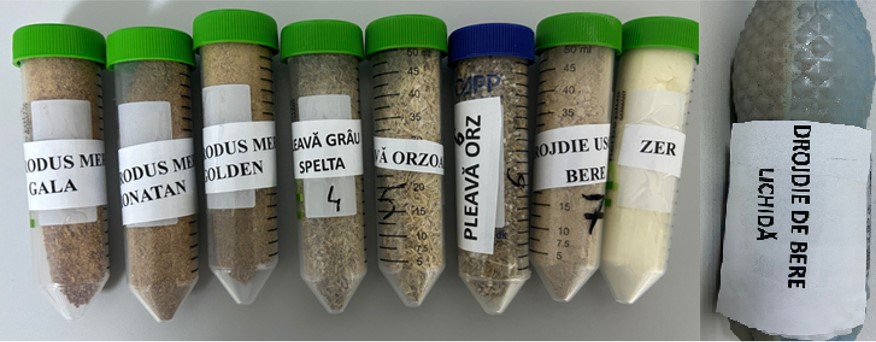
Phase 1 Analysis
I. Physicochemical analysis
I.1. Elemental analysis
I.2. Isotopic Fingerprinting IRMS
I.3. Thermogravimetric analysis
I.4. Ash analysis – 1
I.5. Total nitrogen determination – 1
I.6. Phytochemical composition by spectrophotometric methods and UHPLC-MS/MS
II. Toxicological analysis
II.1. Heavy metals
II.2. Pathogens and mycotoxins
III. Nutritional analysis
III.1. Humidity
III.2. Fat
III.3. Proteins
III.4. Crude fiber
III.5. Sugar
III.6. Ash – 2
III.7. Carbohydrates
III.8. Antioxidant activity
III.9. Salt (NaCl)
Two experimental models for minimal processing of subproducts were elaborated and realized at lab scale and projected at pilot scale. The first EM consisted in using the subproducts to obtain fermentative drinks with superior biological and biochemical properties. The second EM consisted in the lysis of spent beer brewer’s yeast.
Results – Phase 1
•Raw materials and sub-products from various food industry (apple processing, beer, milling-bakery, milk industry) preliminarly evaluated from physicochemical, microbiological, toxicological and nutritional point-of-view;
•2 EM for minimal processing of agro-food sub-products;
•Pilot scale projection
•SWOT analysis;
•webpage: https://icechim.ro/project/ader1712-en/
•1 scientific communication at the international conference Priochem – XIXth edition/2023, ”The properties of bioproducts from streamlined ultrasonic lysis of spent brewer’s yeast cells are highly influenced by lysis parameters”, Ciobanu, L. et al. (Special Award)
Phase 2. Validation of raw material evaluation and the obtaining of functional ingredients and alimentary products at laboratory scale
Implementation period: 31.10.2023 – 30.10.2024
Several methods were validated for detailed evaluation of subproducts (Scheme 1) and derived food products.
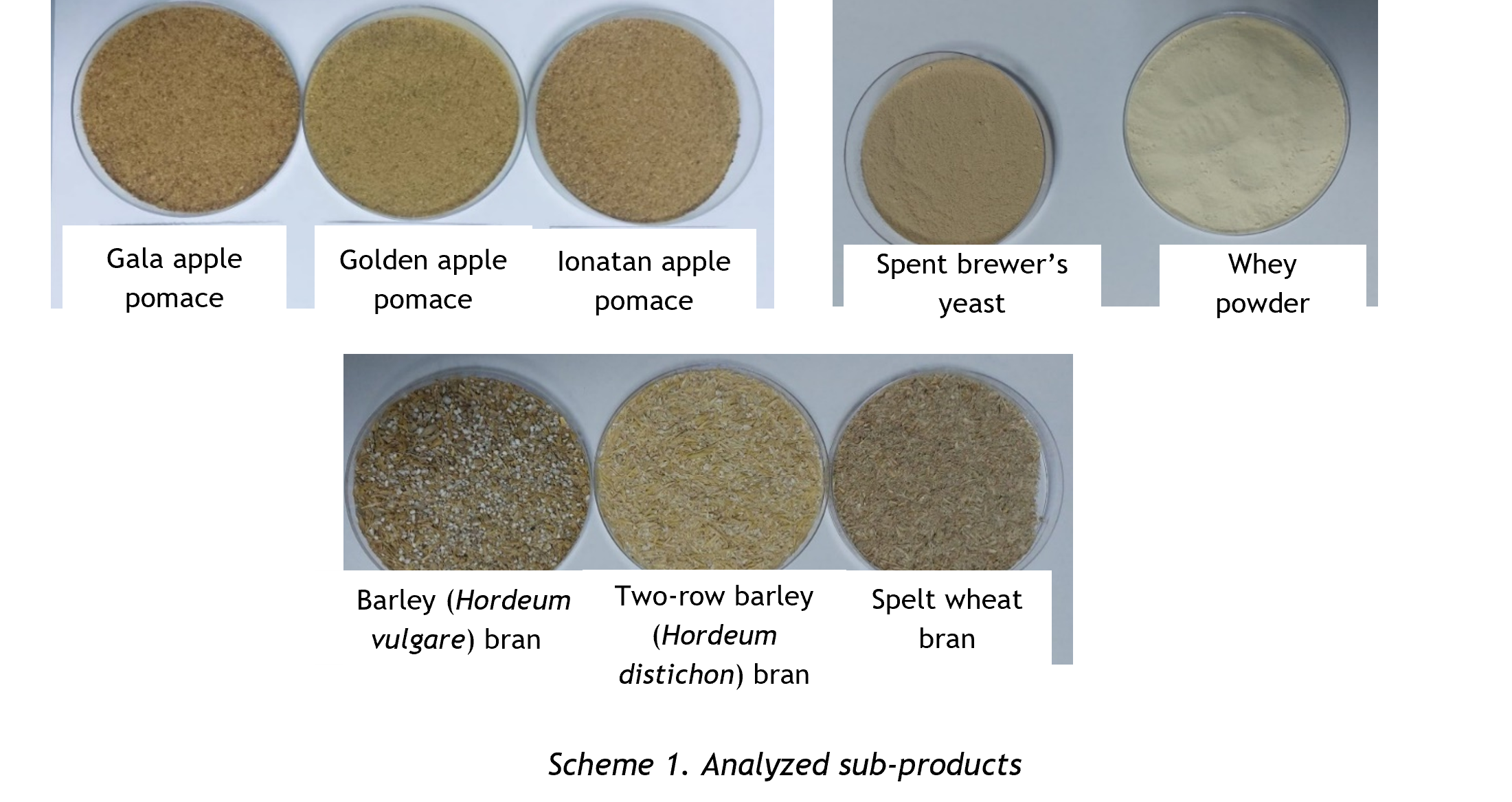
During phase 2, five technologies of minimal sub-product processing at laboratory level were developed. The first three technologies consisted in using the sub-products to obtain functional ingredients by fermentative processes. The fourth technology consisted in obtaining functional ingredients by brewer’s yeast lysis. The fifth technology implied a sequential extraction of bioactive compounds from sub-products.
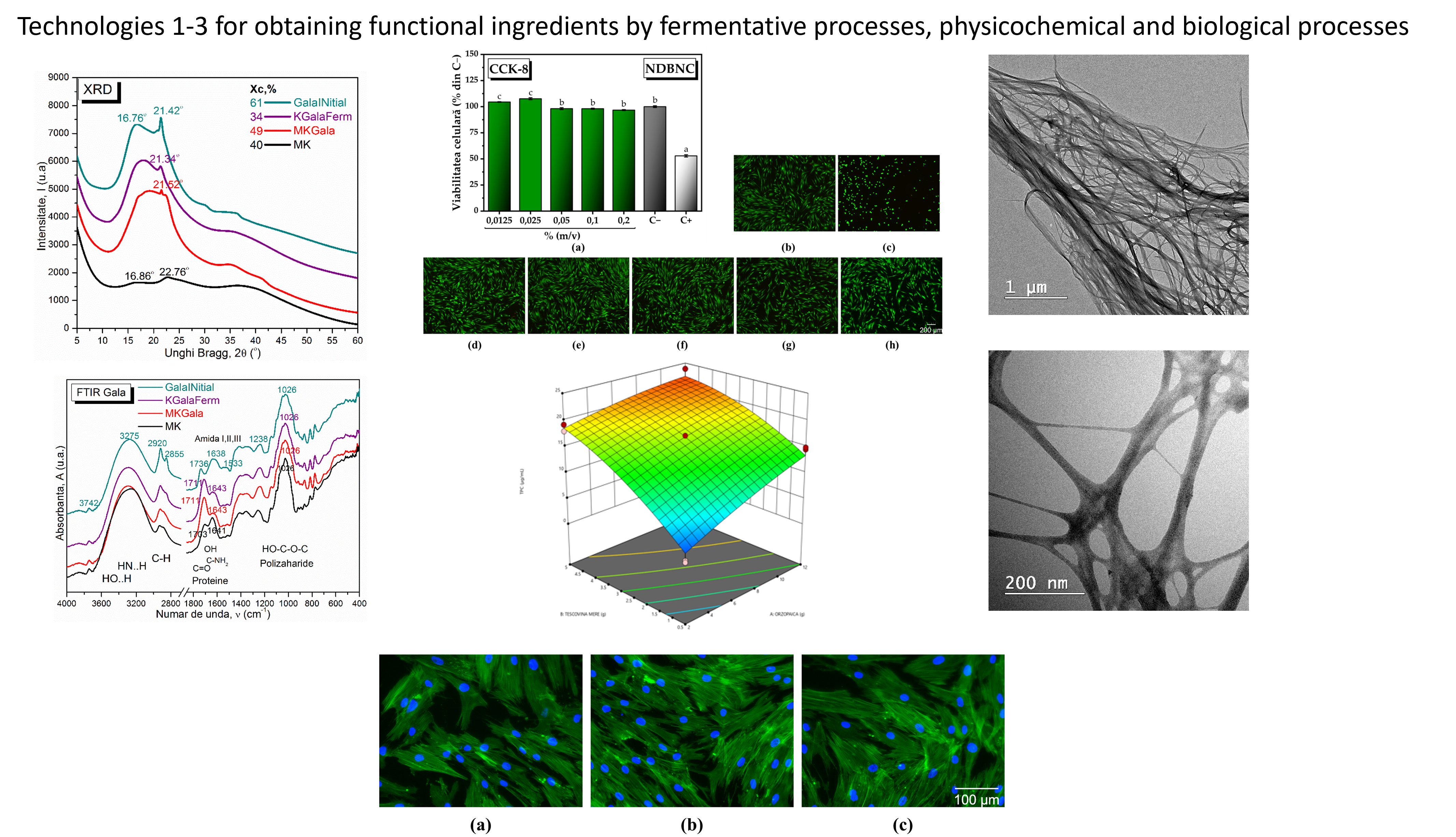
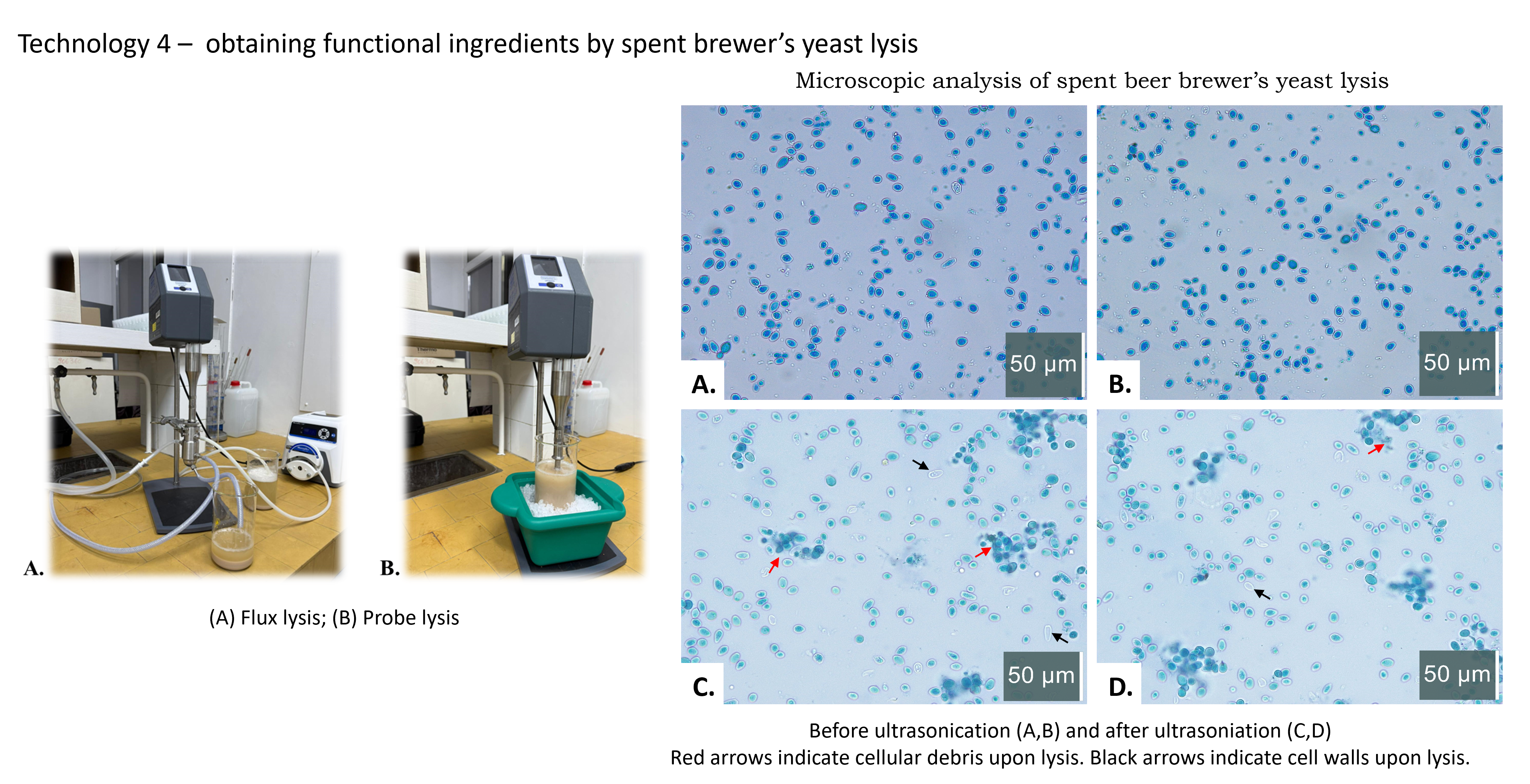
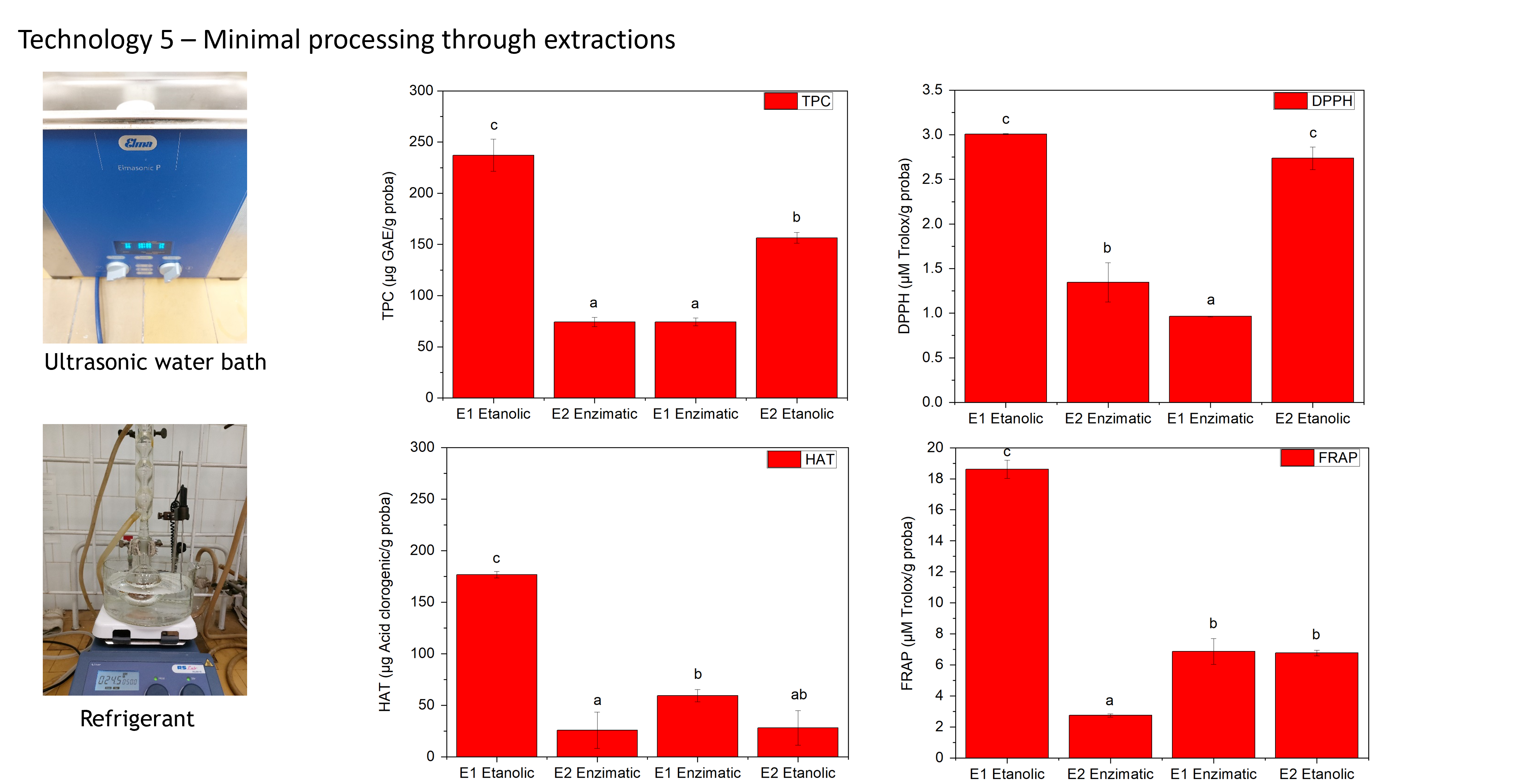
During phase 2, six technologies for obtaining six food products with high added nutritional and technological values were developed at lab scale. The first
three technologies consisted of using the sub-products for obtaining food products and nutraceuticals with superior biological and biochemical value, based on fermentative processes. Technology 4 consisted in obtaining crackers and Technology 5 consisted in obtaining chocolate bars. Technology 6 consisted in obtaining canned vegetable and fruit food based on the sub-products, raw materials and functional ingredients.
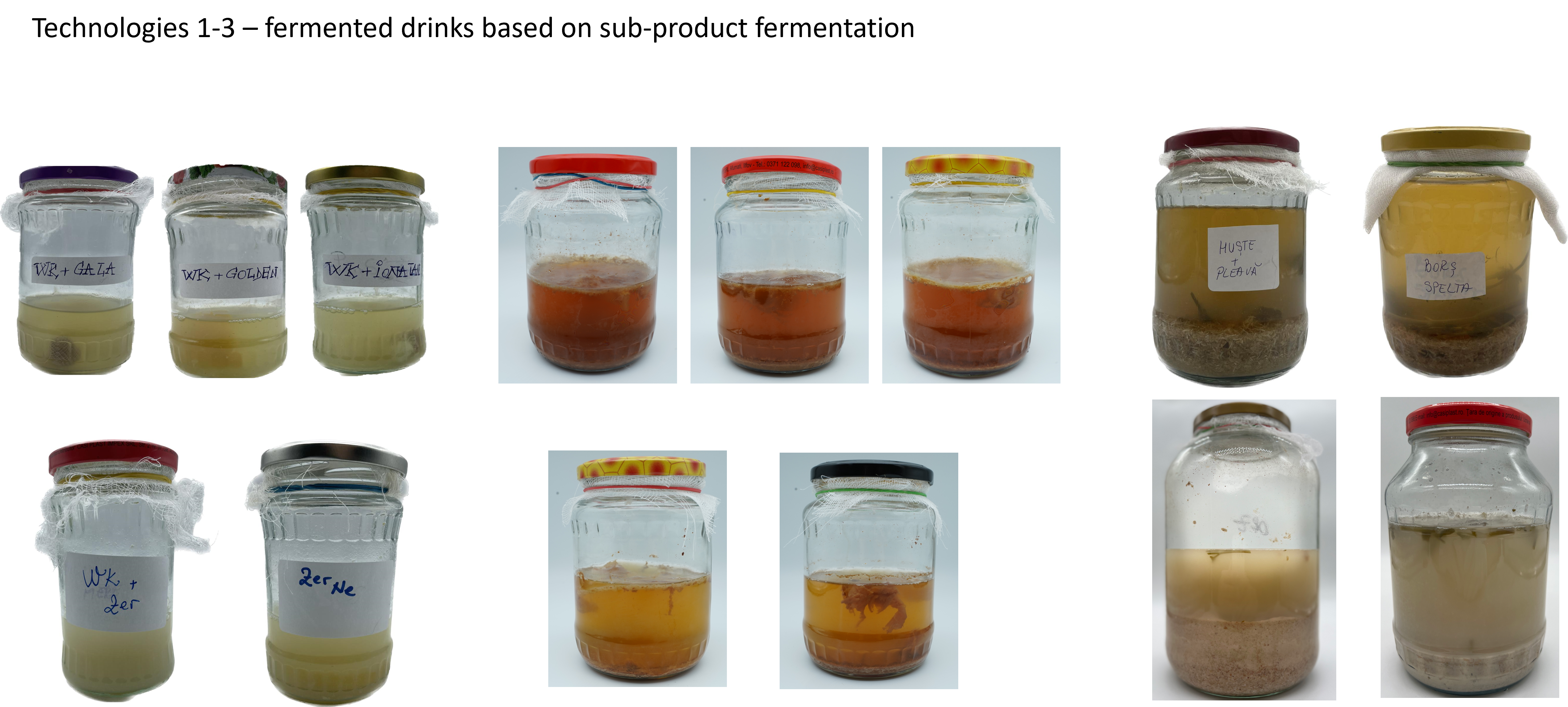
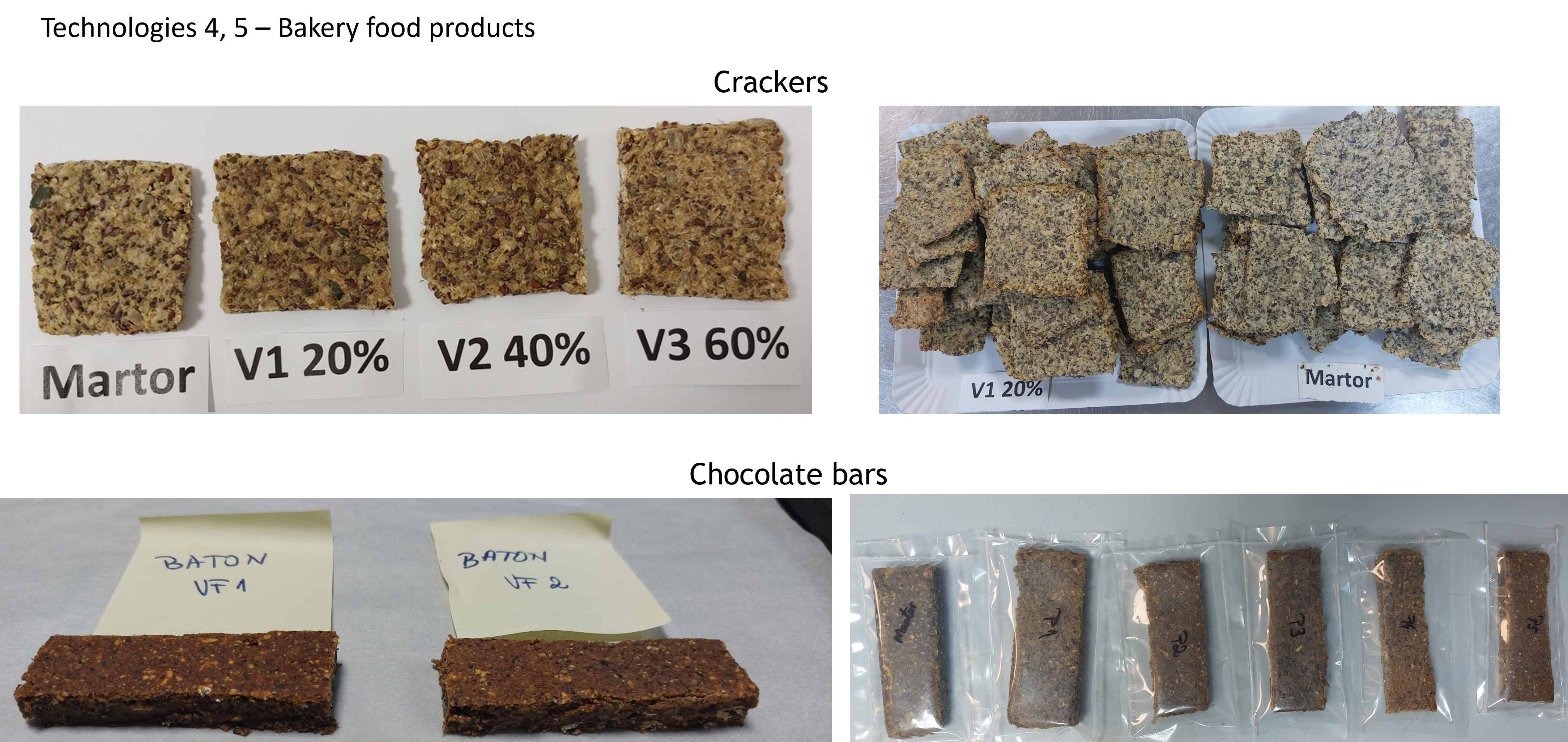
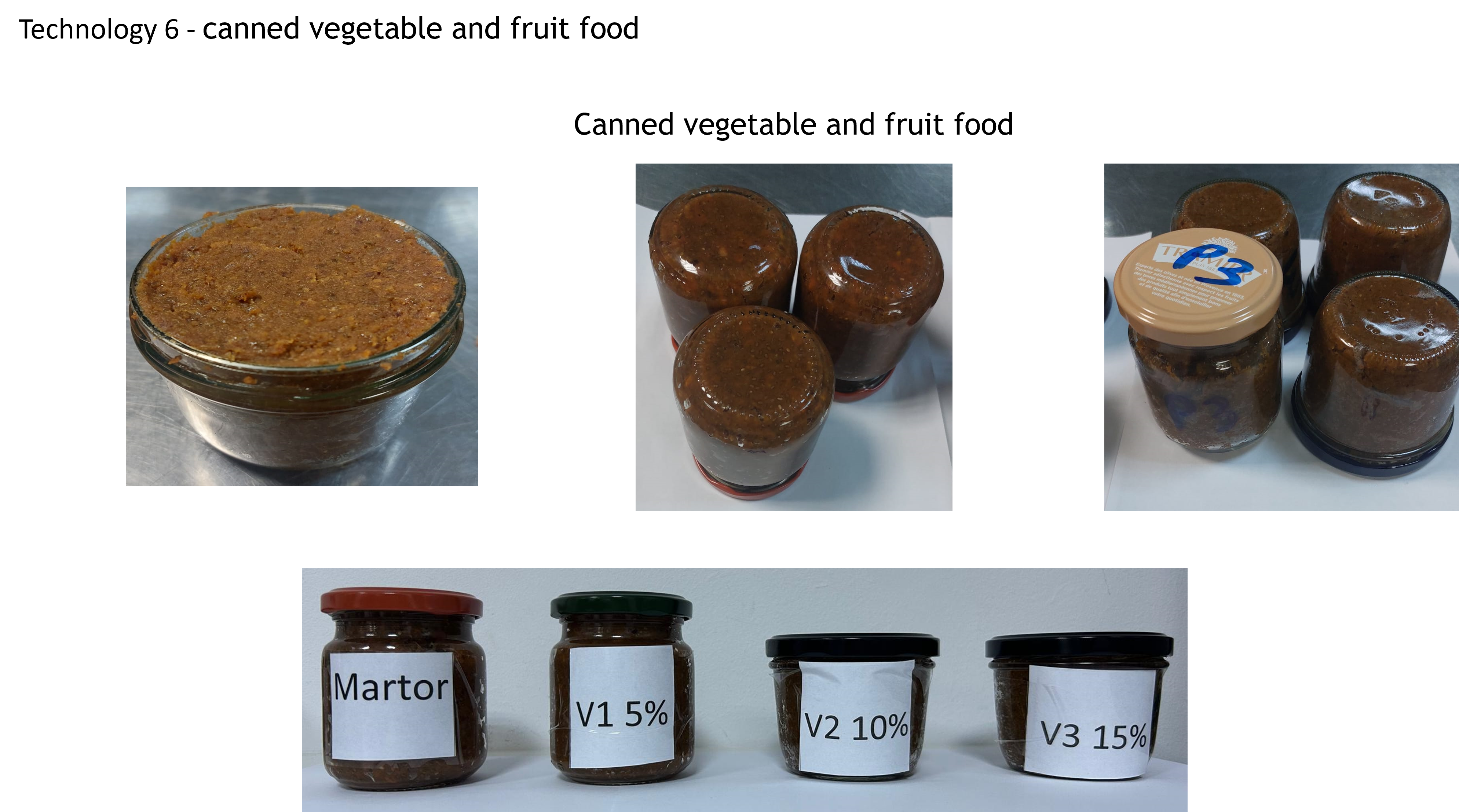
Communication and dissemination
International Conferences and Symposia:
1.Fulvia Manolache, Mirela Cucu, Mihaela Multescu, Gabriela Criveanu-Stamatie, Beatrice Poteras, Diana Constantinescu-Aruxandei, Denisa Duta. Characterization and Potential Health Benefits of Nutrient-Rich By-Products from Various Food Sectors, 23rd Romanian International Conference on Chemistry and Chemical Engineering (RICCCE), Constanța, 4-7 Septembrie 2024 (poster)
2. Ecaterina-Andreea Constantin, Oana-Romina Botoran, Florentina Matei, Diana Constantinescu-Aruxandei, Florin Oancea. Optimizing fermentation processes: valorization of by-products in a new approach for products in the food industry, The 20th International Symposium “PRIORITIES OF CHEMISTRY FOR A SUSTAINABLE DEVELOPMENT”, PRIOCHEM XX, 2024 (poster)
3. Mălina Deșliu Avram, Ecaterina Andreea Constantin, Diana Constantinescu-Aruxandei, Florin Oancea. Analysis of polyphenols and antioxidant activity obtained from a two-step extraction of apple pomace, The 20th International Symposium “PRIORITIES OF CHEMISTRY FOR A SUSTAINABLE DEVELOPMENT”, PRIOCHEM XX, 2024 (poster)
4. Oana Romina Botoran, Elisabeta Irina Geană, Claudia Șandru, Corina Ciucure, Nadia Păun, Andreea Maria Iordache, Diana Ionela Popescu, Roxana Elena Ionete. Preliminary investigations of agro-industrial by-products: an integrated approach to sustainability and food safety, The 20th International Symposium “PRIORITIES OF CHEMISTRY FOR A SUSTAINABLE DEVELOPMENT”, PRIOCHEM XX, 2024 (poster)

Patent applications
- Florin Oancea, Diana Constantinescu-Aruxandei, Livia Teodora Ciobanu, Mălina Deșliu-Avram, Naomi Tritean, Carmen Lupu, Maria Antonia Tănase. Taste and aroma enhancer and process to obtain it, 00643/2024
- Florin Oancea, Diana Constantinescu-Aruxandei, Ecaterina-Andreea Constantin, Naomi Tritean, Mălina Deșliu-Avram, Eliza Gabriela Brettfeld, Luminița Dimitriu. Multifunctional drink and process to obtain it, 00642/2024
Papers in WoS Journals:
- Livia Teodora Ciobanu, Diana Constantinescu-Aruxandei, Ileana Cornelia Farcasanu, Florin Oancea, Spent brewer’s yeast lysis enables a best out of waste approach in beer industry, IJMS (IF 4,9)
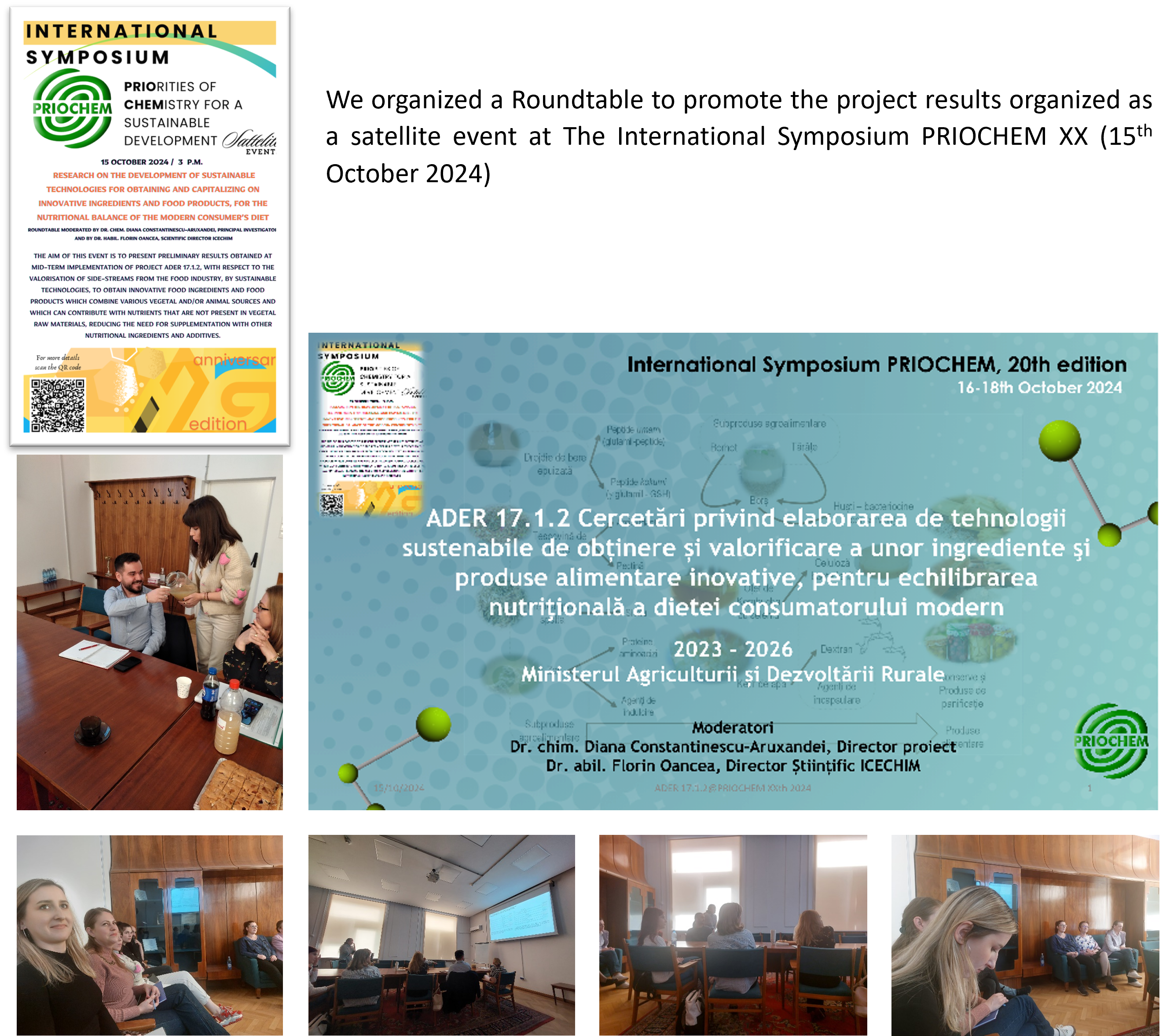
Results – Phase 2
•Raw materials and sub-products from various food industry (apple processing, beer, milling-bakery, milk industry) validated from physicochemical, microbiological, toxicological and nutritional point-of-view;
•5 Technologies to obtain functional ingredients by minimal processing of the agri-food sub-products;
•7 Functional ingredients
•6 Technologies to obtain six food products with high added nutritional and technological values;
•Up-to-date webpage: https://icechim.ro/project/ader1712-en/
•4 Scientific communications
•2 National Patent Applications
•1 paper in WoS Journal (IF 4,9)
•1 round table for result dissemination
